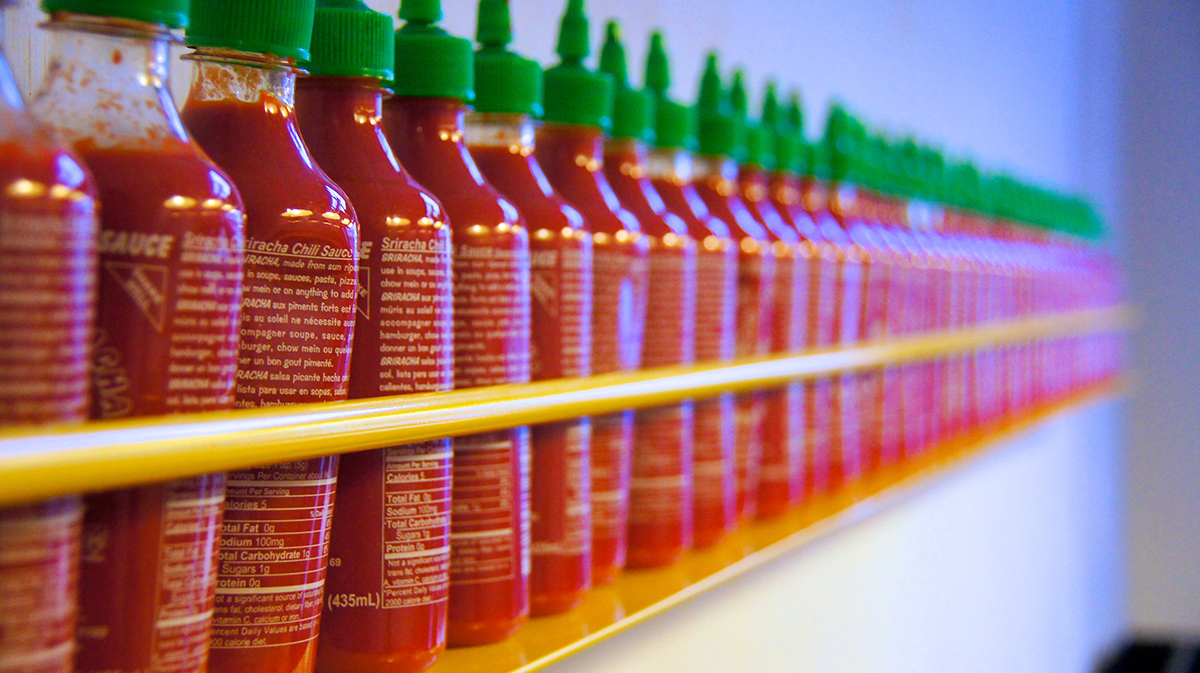Eating Spicy Food May Decrease Mortality Risk, Study Says

Sriracha photo by Ted Eytan via Flickr/Creative Commons
A new study from the Harvard School of Public Health may have just validated your hot sauce addiction.
Researchers found that people who ate spicy foods, like chili peppers, almost every day had a noticeably lower risk of death than those who ate them less than once a week, suggesting serious health benefits from spicy food. To reach that conclusion, the researchers examined dietary information from almost 500,000 people, all between the ages of 30 and 79 and with no history of cancer, stroke, or heart disease, then followed up about seven years later to determine mortality rates.
After adjusting for other mortality risk factors, the researchers concluded that spicy food fans had a 14 percent lower risk of death than those who favored milder cuisine, and were also at lower risk for cancer, heart, and respiratory diseases. That result held true, especially, for people who didn’t drink alcohol.
Notably, all of the people who Harvard studied were enrolled in the China Kadoorie Biobank, a wide-ranging Chinese study looking at risk factors for and influences on chronic disease, so further research will be necessary to determine if the results transfer over to other demographics. Nonetheless, Harvard’s is the first study to directly examine a link between spicy food and mortality, opening the door to a new vein of nutrition research.
Hey—may as well buy the hot salsa, just in case.


